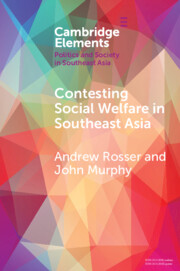A growing scholarship has documented changes in welfare policy in twenty-first-century Latin America, but no study yet has offered a systematic assessment, using a welfare regime approach, that captures the main trends across countries and over time. For a sample of 17 countries, this study offers a comprehensive tool to measure shifts in social policy regimes, highlighting three dimensions of welfare – inclusion, generosity, and equity – across four policy areas: transfers, health care, education, and family policies. Countries made significant progress in generosity and inclusion, but none improved equity. A cluster analysis based on the three dimensions of welfare offers a new, more precise classification of Latin American countries in welfare regimes in 2002 and 2017. Although the analysis shows minor shifts in country groupings, an increasing reliance on social assistance policies, particularly among the most advanced countries, marks a shift towards what I call compensatory regimes.
